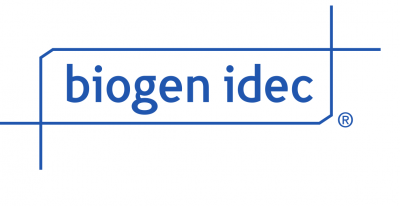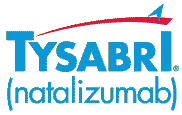Natalizumab, Other Biogen Idec MS Therapies Featured at Medical Congresses; Company Joins Sailing Sclerosis Foundation Oceans of Hope Project
Written by |

Biogen Idec , a U.S. biotechnology company specializing in therapies for neurological disorders, autoimmune disorders and cancer, has announced that more than 60 company-sponsored presentations highlighting key data from its extensive portfolio of marketed and investigational multiple sclerosis (MS) therapies were featured during two 2014 neurology conferences. The company claims that this honor further demonstrates its corporate commitment to meeting individual needs of MS patients and improving outcomes with research that addresses important efficacy and safety questions.
, a U.S. biotechnology company specializing in therapies for neurological disorders, autoimmune disorders and cancer, has announced that more than 60 company-sponsored presentations highlighting key data from its extensive portfolio of marketed and investigational multiple sclerosis (MS) therapies were featured during two 2014 neurology conferences. The company claims that this honor further demonstrates its corporate commitment to meeting individual needs of MS patients and improving outcomes with research that addresses important efficacy and safety questions.
Biogen Idec Data is being presented during the annual meeting of the Consortium of Multiple Sclerosis Centers (CMSC) and the Sixth Cooperative Meeting with Americas Committee for Treatment and Research in Multiple Sclerosis(ACTRIMS; May 28 – May 31 at the Hilton Anatole in Dallas, Texas); and the Joint Congress of the European Federation of Neurological Societies (EFNS) and European Neurological Society(ENS; May 31 – June 3 in Istanbul, Turkey).
MedScape News’s Daniel M. Keller, PhD reports that a presentation at the conference in Istanbul by Luca Durelli, MD, from the Department of Clinical and Biological Sciences at the University of Torino and the San Luigi Gonzaga University Hospital in Obassano, Italy, on results of a multicenter, observational discontinuation study after the 24th administration of the Biogen Idec MS drug Tysabri (natalizumab) concluded that in patients with relapsing-remitting MS, “interruption of treatment with natalizumab after the first 24 courses exposes [patients] to an increased risk of clinical and/or MRI MS disease activity.” He added that nevertheless the study results can support a choice of continuing natalizumab beyond 24 months.
According to the Multiple Sclerosis Society of Canada (MSSC), Natalizumab is a type of protein called a monoclonal antibody that is produced from mammalian cells using recombinant DNA techniques (a series of procedures used to join together DNA segments), and Biogen’s proprietary Tysabri is the first in a class of agents called selective adhesion molecule inhibitors. In MS, inflammatory T cells enter the central nervous system by attaching to the blood-brain barrier with “sticky molecules,” called alpha-4 integrins. Tysabri blocks alpha-4 integrin and prevents T cells from entering the central nervous system, where they cause inflammation and damage to myelin (the insulating material that protects nerves and helps them work properly).
[adrotate group=”4″]
Biogen says Tysabri is indicated as monotherapy for the treatment of patients with relapsing forms of MS, but increases the risk of progressive multifocal leukoencephalopathy (PML), an opportunistic viral infection of the brain which usually leads to death or severe disability. So when initiating and continuing treatment with Tysabri, physicians should consider whether the expected benefit is sufficient to offset this risk. In the European Union, Tysabri is indicated as a single disease modifying therapy in highly active relapsing-remitting MS (RRMS) for adult patients who have high disease activity despite treatment with a beta interferon or glatiramer acetate or patients with rapidly evolving severe RRMS.
 The MSSC notes that since Tysabri was released in 2006, 95 cases of PML and 20 deaths have been reported, and that data have suggested that risk of developing PML increases with longer treatment duration, although risk for people taking Tysabri beyond 3 years is yet to be determined. The risk of PML also increases in people who have been treated with an immunosuppressant prior to receiving Tysabri, although it’s estimated to be a relatively low 1 in 1000 (0.1%) during 18 months of treatment.
The MSSC notes that since Tysabri was released in 2006, 95 cases of PML and 20 deaths have been reported, and that data have suggested that risk of developing PML increases with longer treatment duration, although risk for people taking Tysabri beyond 3 years is yet to be determined. The risk of PML also increases in people who have been treated with an immunosuppressant prior to receiving Tysabri, although it’s estimated to be a relatively low 1 in 1000 (0.1%) during 18 months of treatment.
Biogen maintains that Tysabri has advanced the treatment of MS patients with its established efficacy, and that data from the Phase 3 AFFIRM trial, which was published in The New England Journal of Medicine, showed that after two years, TYSABRI treatment led to a 68 percent relative reduction (p<0.001) in the annualized relapse rate when compared with placebo and reduced the relative risk of disability progression by 42-54 percent (p<0.001).
Infection by the JC virus (JCV) is required for the development of PML and patients who are anti-JCV antibody positive have a higher risk of developing PML. Factors that increase the risk of PML are presence of anti-JCV antibodies (reportedly 60% to 80% of adults in the United States and Europe are positive for antibodies to it, indicating exposure), prior immunosuppressant use, and longer Tysabri treatment duration. Patients who have all three risk factors have the highest risk of developing PML. Tysabri also increases the risk of developing encephalitis and meningitis caused by herpes simplex and varicella zoster viruses, and serious, life-threatening, and sometimes fatal cases have been reported in the post-marketing setting in multiple sclerosis patients receiving Tysabri. Other serious adverse events that have occurred in TYSABRI-treated patients include hypersensitivity reactions (e.g., anaphylaxis) and infections, including opportunistic and other atypical infections. Clinically significant liver injury has also been reported in the post-marketing setting. A list of adverse events can be found in the full TYSABRI product labeling for each country where it is approved.
However, in a recent Bionews Texas report about Tysabri clinical studies, Aaron Miller, MD, a member of the ASCEND trial advisory board noted in a press release from Biogen Idec that “There are limited treatment options available to people living with secondary-progressive multiple sclerosis, and there is a high unmet need for effective therapies.”
“Our research and development efforts over the past 30 years have positioned Biogen Idec at the forefront of MS innovation, and the scope of data we are presenting at CMSC/ACTRIMS and EFNS/ENS underscores our commitment to improving the lives of people living with MS,” says Katherine Dawson, M.D., vice president, global medical neurology at Biogen Idec. “Beyond discovering new treatments, we are also focused on innovating across the spectrum of MS care, investigating different approaches to advancing disease management.”
The data presented at CMSC/ACTRIMS and EFNS/ENS included results from studies of not only Tysabri (natalizumab), but other Biogen Idec currently marketed products Tecfidera (dimethyl fumarate), Avonex (interferon beta-1a), and Fampyra (prolonged-release fampridine tablets) in markets outside of the U.S. — as well as findings from the clinical programs of its MS pipeline candidates Plegridy (peginterferon beta-1a), daclizumab high-yield process ([DAC HYP], EFNS/ENS presentation only) and Anti-LINGO-1 ([BIIB033], EFNS/ENS presentation only).
Details and Biogen Idec data presentations listings for the 2014 annual CMSC/ACTRIMS Meeting and 2014 Joint Congress of the EFNS and ENS can be found by visiting:
CMSC/ACTRIMS:
https://annualmeeting.mscare.org/
Joint Congress of the EFNS and ENS:
https://www.sessionplan.com/istanbul2014/
Oceans of Hope For People With MS
In celebration of Last month’s World MS Day and as part of its ongoing mission to support MS patients globally, Biogen Idec announced that it has joined the Sailing Sclerosis Foundation’s (SSF) Oceans of Hope project as principal sponsor and official partner. This multi-year, global campaign is designed to use sailing as a means to educate and empower the MS community, changing perceptions of what it means to live with the disease and demonstrating the benefits of an active lifestyle.
The Oceans of Hope project was pioneered by Dr. Mikkel Anthonisen, Founder of SSF and an MS specialist at Copenhagen University Hospital, Rigshospitalet. Dr. Anthonisen and several other crew members, including some living with MS, will sail around the world, building strong bonds with the global MS community.
“We are proud to be a part of the Oceans of Hope project, which fits perfectly with our more than three decade commitment to supporting the MS community through innovative science and patient programs,” commented David Allsop, senior vice president, Europe and Canada for Biogen Idec. “Treatment of MS needs to be holistic — incorporating the right therapies with community programs and resources. Through its message of empowerment, we believe that Oceans of Hope can benefit thousands of patients around the world.”
The campaign kicked off May 28 in Copenhagen, Denmark with the official naming of the boat, and will officially launch from Copenhagen on June 15, after which the boat will stop in multiple harbors in Europe, North America, South America, and Australia. Each port day will be celebrated with an interactive event, giving people living with MS the opportunity to learn to sail and participate as crew members.
“We are delighted to partner with Biogen Idec. Oceans of Hope aims to change perceptions of MS by showing what is possible when people with a chronic disease are empowered to conquer their individual challenges,” says Dr. Anthonisen. “As a physician, I see that each person who has MS is unique and needs access to different resources to treat their individual disease. The voyage will also carry this year’s World MS Day theme of access across the globe, building stronger bonds across the global MS and sailing communities.”
For more information about Oceans of Hope and SSF, where the boat will stop, or how to participate in the program, visit:
https://www.sailingsclerosis.com/
The vessel’s voyage can be followed via SSF social media either via Twitter @sailsclerosis, Facebook at https://www.facebook.com/OceansofHope, and Instagram at OceansofHope.
Founded in 1978, Biogen Idec is the world’s oldest independent biotechnology company that specializes in multiple sclerosis therapies. For more information, visit:
https://www.biogenidec.com
Sources:
Biogen Idec
Multiple Sclerosis Society of Canada
MedScape News
Sailing Sclerosis Foundation


